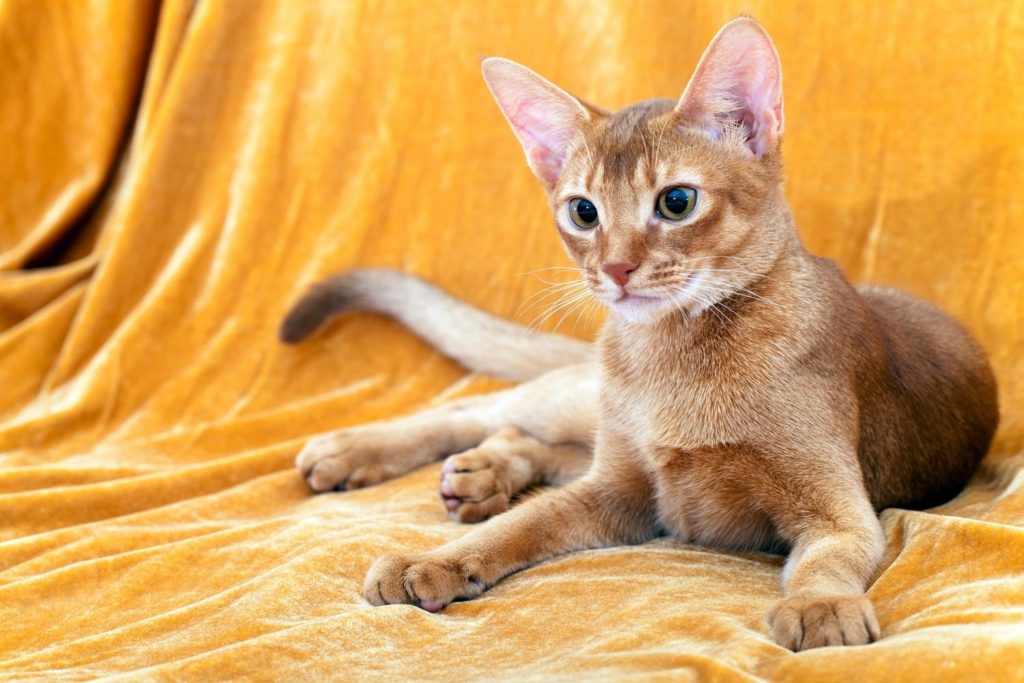
There are many reasons why a cat owner may wonder just how long their cat can go without food. Sometimes it’s simply a matter of figuring out if you need to put your cat in some kind of boarding facility while you travel.
Or maybe the person who usually feeds your cats while you’re gone is unavailable. It could also be that your cat is refusing to eat, and you’re growing concerned. No matter the reason, we can help you understand how long your cat can go without food before it becomes a serious problem.
You might also want to know about the best cat food for kidney disease, that can keep your cat healthy in old age.
How long can my cat go without food?
As long as they have fresh water, it’s technically possible for a cat to survive for up to two weeks without eating. However, it’s important to understand that a cat who’s lived for two weeks without food would be on the verge of death, and in terrible health.
It would also be extremely unusual, as most cats actually can’t survive that long without food.
A cat’s liver simply isn’t designed to support their body that long without protein, even if they have plenty of body fat to burn for energy. Without protein, 3-4 days is as long as most cats will survive.
This means that, if your cat isn’t eating, the situation can quickly become dangerous. Without adequate protein intake, their health deteriorates much faster than you might expect, and even a day or two without food is cause to call your veterinarian.
If you’re going to be traveling, it’s vital that you make arrangements for your cat to be fed while you’re gone. It’s best to have someone who can check on them every day to make sure they have food and fresh water available.
If you can’t find anyone to come to your home and check on them, you may need to check with your vet to see if they can kennel your cat while you’re gone, or if they know of any local businesses that offer that service.
Many cat owners may try to simply leave out a large supply of dry food for their cats while they’re gone, but this is a risky idea. You may not leave enough food out, or your cat may eat it all at once, leaving themselves without food later.
Why is My Cat Not Eating?
Ensuring that your cat is fed while you travel is a fairly simple thing. Figuring out how to get a cat to eat when they’re refusing food can be trickier.
As we’ve already pointed out, getting your cat to eat is an urgent task, because it only takes a couple of days without protein for them to be in serious risk. Here are some of the most common reasons your cat may be refusing to eat:
- Dental problems
- Nausea
- Kidney failure
- Pancreatitis
- Cancer
- They don’t like the food your offering
In many cases, fortunately, the solution to this is very simple: switch to different food. It’s surprisingly common for your cat to refuse to eat simply because they don’t like the food you’re offering them.
Instead of just switching to a different brand, try switching to a different type of food. If you’re offering dry food, switch to wet food. Wet food is typically much more aromatic than dry food, and the smell can entice a picky cat to eat.
You might also try offering them morsels of food from your plate when you’re eating- we would generally discourage this practice, but it may be helpful in determining if your cat is simply being picky or if there’s something more serious going on.
Try offering them something you know they go crazy for every cat has their favorites, after all. If they won’t eat that, it may be time to call your vet. If they do eat it, then they’re likely just being picky about their food.
Health Related Reasons Your Cat isn’t Eating
If your cat refuses to eat, or only takes a few bites of food before giving up, they might be sick. Watch them closely when you offer food. If they wince in pain just before taking a bite, or just after, there’s definitely something wrong.
This could be a simple dental problem. A broken or rotten tooth might be making it painful for them to eat. If they’re experiencing nausea, that could cause a loss of appetite, although it’s usually accompanied by vomiting, making the diagnosis pretty easy.
There are many illnesses that can cause a loss of appetite for your cat, and a lot of them are quite serious. Kidney disease, pancreatitis, and cancer can all cause a loss of appetite. If it’s clear that your cat has lost their appetite, you should call your vet right away.
If your cat has just been vaccinated or put on a new medication, this could be the cause of their loss of appetite. If their medications are causing a loss of appetite your vet may be able to suggest things you can do to overcome that or switch them to a different medication that won’t affect their appetite.
What Happens if My Cat Goes too Long Without Food?
Cats can develop serious health problems very quickly when they aren’t eating. Organ failure is one of the most severe health risks they face if they stop eating. First, the digestive system begins to shut down, followed by the brain and then the heart.
Hepatic lipidosis, a very dangerous illness of the liver, can be caused by starvation. Since a cat’s liver is not designed to function on only the stored energy in their body, a lack of food and especially a lack of protein can cause this liver disease in cats.
You might also like to read our recent publication on how to transition cat food? This resource helps you to keep your cat up and healthy all the time.
Conclusion
Cat owners often don’t worry about whether or not their cat is eating. It’s easy to assume that they can take care of themselves, and if they aren’t eating their cat food it’s because they’ve been out hunting birds and mice all day and they’ve eaten their fill.
While that might be true, most domestic cats don’t eat the animals they kill, and the risk to your cat is simply too high to make that assumption. It only takes 3-4 days for lack of food to be fatal to a cat, and so if you notice your cat not eating it’s cause for immediate concern.
It should be fairly easy to determine if the problem is just that they dislike the food you’re offering- and it’s common for cats to grow tired of the same food they’ve been eating and simply refuse to eat more of it- or if there’s something more serious going on.
Once it’s clear that they’ve actually lost their appetite, call your vet right away and they can help you resolve the issue.
